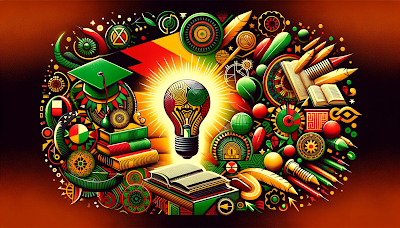Folktales As Tools Of Liberation
Peace FAM:
I'm sitting at my computer preparing for my presentation to the village and I just need to get a few thoughts down, and figured I was over due for another post on my blog. It has been a long time since I have sat down to actually write, I am use to talking to the cameras as I stream my thoughts, but at this moment I need to organize my thoughts, and prepare to talk to my larger family. It is always a humbling thing for me to be invited to share my perspective. In order to get my thoughts across in the proper way I want to use this platform to construct a discussion about the power of tales, myths and legends, and their importance to our freedom struggle and personal growth.
Folktales are just stories that have moved beyond the first teller of the tale. Folktales are born when a story grows beyond the original teller. The tell and the characters of the story grow and move into the pantheon of the people from which the tell was told. These stories act as conduit of information that can assist the people in their quest for survival. I would argue that stories are technology, and I personally believe that stories were the first techonology developed by our people to assit them in their over all quest for survival. In these stories our ancestors would put "jewels of wisdom" for future generation, that would reduce the learning curve of the next generation. In other words each generation would adapt and change the stories to leave information that was important for the next generation to recieve to heighten that groups chances of surviving and eventual move them to a state of thriving.
Their are two major methods of passing information the first is the one that we are familiar with and it is the method that we are exposed to when we enter school. This method is the analytic method of passing on raw information, through dates, time and other raw information. This method is useful and become more useful when we developed ethods of writing tthat made it easy to hold on to this information, as well as access it. The problem with this method is that it is dry, and only a small part of the group would be able to maintain the information over long periods. The second method and the one that I will focus on in this discussion is the relational method. This method would structure information in such away that the retention of it was simplier, because the individual would be able to develop a relationship with the information. This is the story format, and the first method that we devloped to pass on information.
The relational method is what cultures use to pass on the lessons of life, that all of the members need to know in order to survive. Folktale, stories, myths, and legends are all story methods that all cultures use. Checkout the podcast and let me know what you think. https://www.spreaker.com/user/4374999/per-ankh-brother-ha2tim




Comments
Post a Comment